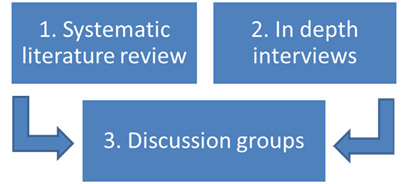Patient and Public Involvement – The ‘Expert Patients’ Advisory Group
‘Expert Patients’ is an online advisory group made up of people with long-term conditions. Members can access assignments and make comments using the menu tabs on the top left column on this screen.
Role description for members of ‘Expert Patients’
Members of ‘Expert Patients’ will share perspectives and carry out assignments to inform the design, analysis and dissemination of research about the support needs of people with Multiple Sclerosis (MS) and long-term conditions (LTCs). Members will receive notification of each new assignment via e-mail and will be given instructions on how to access material, complete tasks and submit assignments online. Examples of tasks include: giving feedback on research design, recruitment documents and lay summaries.
Research background
Decision support and information needs of people with multiple sclerosis
The importance of active patient participation during medical consultations is increasingly recognised. This is for various reasons: 1) patients have valuable expertise as they learn a lot about their condition through living with it every day (especially with long-term conditions); 2) it is a patient’s right to be involved; 3) advances in medical technologies mean there are more treatment choices available; 4) a patient’s personal values and preferences may affect decisions about how best to treat the condition..
Clinician (or doctor) input is still as valued as ever; increased patient involvement does not mean reduced clinician involvement. Clinicians are experts in diagnosis, prognosis, treatment options, causes and prevention strategies, but patients’ expertise needs to be recognised too. The concept of ‘shared decision making’ is where patients and clinicians work together in equal partnership, sharing information and valuing one another’s input when making decisions and planning care. This approach attracts widespread support in theory, but it is hard to put into practice. Our study is looking at the relevance of this approach to the treatment of multiple sclerosis.
Multiple sclerosis (MS) is a neurodegenerative condition. MS affects people in different ways and symptoms may include pain, fatigue and motor loss. Typically, people with MS experience gradual long-term impairment, with episodes of symptoms (relapse) and recovery (remission). MS is a highly variable condition as symptoms, relapse triggers and treatment effectiveness vary between and within individuals. Decision-making in MS is characterised by uncertainty due to the complexity of the condition.
The Research
This research aims to explore the decision-making experiences of people with MS. We hope to identify ways in which clinicians can support patients in decision-making and care planning at different stages of the condition.
There are three stages of the study:
- A systematic literature review will be carried out to assess the effects of personalised care planning, a process where patients and clinicians work together to set priorities and goals and plan ways to achieve these. During this phase we will review randomised trials looking at the effects of patient involvement in decisions about their care across a wide range of conditions, not just MS.
- In-depth interviews will be carried out with people with MS to find out about their personal experiences.
- The findings from the first two stages (above) will be presented in discussion groups with people with MS and clinicians to get their reactions and develop policy recommendations.

This doctoral research is being carried out by Abi Eccles at the Department of Primary Care Health Sciences at the University of Oxford and is funded by the NIHR School for Primary Care Research. It is part of a research programme being carried out by the Quality and Outcomes Research Unit (QORU).
